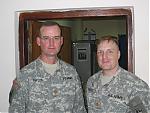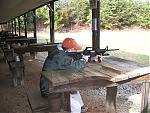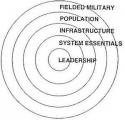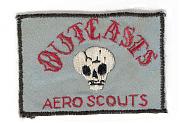might be a good place to start. James Taylor (not THAT one) has done a lot of work on mathematical modeling of conventional war. I don't know if it can be applied to CNA/CND, but it is a place to start. NPS also does a lot of work in M&S, engineering, and sytems analysis so maybe Professor Taylor can point in you in the right direction if his work does not support your. Best of luck.
http://www.nps.navy.mil/orfacpag/resumePages/taylor.htm







 ).
).





Bookmarks